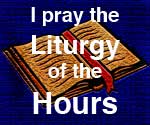That explanation leads to many other queries. Is it possible for a Protestant to be a member of a religious order? Is making perpetual vows to the Order an initiation into some secret society or cult? Are religious orders a repudiation of the insights of the Reformation and an attempt to return to Rome? Why would a pastor in good standing in a liberal Christian denomination submit to a rule that is rooted in the ancient practices of the Church?
The impulse for a disciplined spiritual communal life resonate with people within and outside of the church. It is not limited to one tradition, but finds expressions in many traditions-even in the United Church of Christ. The online UCC community has a forum discussion entitled " Monastic Community in the UCC".
The Order of Corpus Christi is one community in the United Church of Christ whose historical foundations include the Mercersburg Theology of the nineteenth century. This theological movement was an American ecumenical and liturgical movement which was a corrective balance to the popular religious revivalism of the era.
The Foundation Document of the Order of Corpus Christi states:
" Corpus Christi calls us to a life of common prayer and contemplation which
produces concrete action in the life of the Church and the world. At the heart of Corpus Christi we encounter the living Christ in Word and Sacrament in the community of the Church which nurtures us in the life of faith and in mission and ministry. Daily prayer, silence, and contemplation also inform the life of Corpus Christi. All these are not ends unto themselves. They are, rather, means of God’s grace through which the balance is maintained and life, growth, and development in the Christian life and mission are given.
The practices in which the members and communities of Corpus Christi engage are intended to express commonality of faith, worship and service. In the midst of diversity there is unity and commonality in Christ!
The common practices of Corpus Christ serve as a witness and a sign. They
witness to our oneness in Christ, and they are a sign of our communion with others in Christ through one Baptism, one Bread, and the call to discipleship."
This is my community, through which I seek to live out the calling to pray and work for the unity of Christ's Body.
Soli Deo Gloria.

Hi Cecil, I didn't know there was a monastic order in the UCC, it seems so opposite from what I usually experience in this denomination. Do you have a community that meets on a regular basis or is it a solo journey?
ReplyDeleteEllen